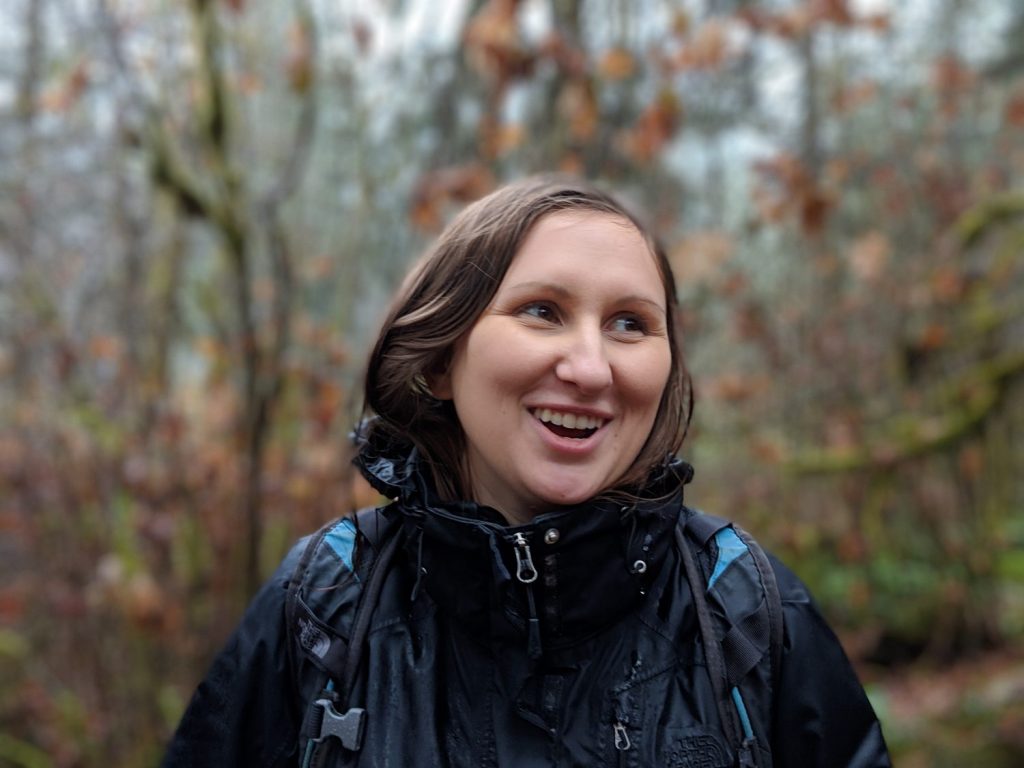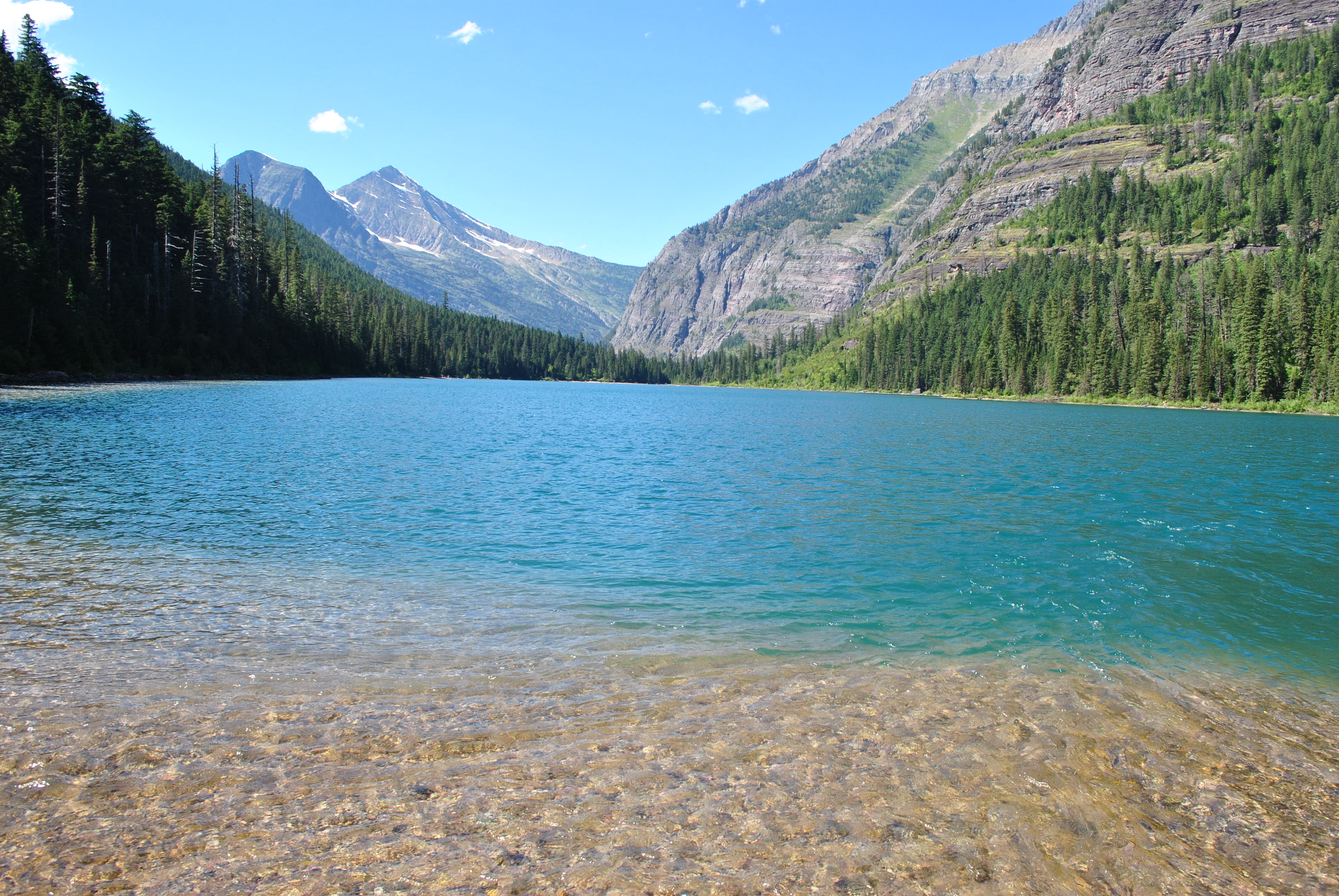Advocate for just & sustainable change • Empathetic leader • Life-long learner • Facilitator • Creative communicator • Naturalist • Organic gardener • Dance party catalyst • Fungi enthusiast • Adventurer
 Sarah (she/they) believes in the power of idealism paired with action. Her work seeks to advance intersectional environmental justice and dismantle systems of oppression so all beings can thrive.
Sarah (she/they) believes in the power of idealism paired with action. Her work seeks to advance intersectional environmental justice and dismantle systems of oppression so all beings can thrive.
Sarah hears from peers, colleagues, and supervisors that their strengths include cultivating relationships built on trust and empathy, sharing her thoughts and perspectives with vulnerability and transparency, and centering needs of communities facing injustice. They have a knack for connecting ideas, people, and projects to build collaborative communities that work toward just and sustainable change. Sarah has extensive experience and skills in:
- project management
- program development
- leadership and operations
- justice, equity, diversity, and inclusion in organizations
- workshop facilitation
- team and community building
- event coordination
- integrated communications, including public speaking, design, newswriting, and outreach
- land-based learning and environmental education
- sustainability initiatives
Read Sarah’s story below, view their resume for more about their education and experience, and browse her portfolio for a few work samples. Watch some of Sarah’s interviews and presentations on their YouTube channel, or read about her graduate experience on the OSU Environmental Arts & Humanities blog. Additional materials are available by request.
Sarah’s story
Sarah lived most of her life in the urban expanse of Houston, Texas. Growing up, they balanced their time exploring the edge habitats near her house with time inside pursuing performing arts and reading about fantastical worlds. The bayous and woods where they played helped them cultivate an appreciation for nature; though hers was a complex relationship with the land, experiencing feelings of love, connection, and loss. She saw the fireflies slowly disappear over time and oil bubble up from discarded car parts in Mustang Bayou. Sarah learned about climate change, habitat loss, and other forms of environmental destruction while living in a place where freeways are more valuable than fireflies and oil and gas profits trump clean air and a stable climate.
Finding her passion in college
While pursuing her undergraduate degree in communications from the University of Houston, Sarah began to find their niche. Motivated by the urgency to address global environmental issues, Sarah started her professional journey in the environmental movement by coordinating sustainable events as a college intern with Green Lily Events. Later at an event on her college campus, she met staff who were launching new sustainability efforts, and she was hired as one of the first staff members dedicated to implementing campus sustainability projects. Sarah was also drawn to connect students directly with the natural world and worked at the University Outdoor Adventure program, leading trips, coordinating climbing competitions, and co-founding the university’s first climbing club.
Building skills in communications and sustainability
In 2012, Sarah graduated from the University of Houston with a Bachelor of Arts in communication and a minor in world cultures and literatures. After graduation, she worked at the UTHealth School of Biomedical Informatics as a communications specialist, writing news articles and speeches, managing the website, designing brochures and newsletters, and coordinating all events and recruitment for the graduate school, among other roles. During this time, they continued to fight for the land by becoming certified as a master naturalist and working on projects to restore and protect the native ecosystems of the Gulf Coast.
She left UTHealth to return to her alma mater and lead campus sustainability initiatives as the first Sustainability Manager. While leading the UH sustainability efforts, Sarah sparked a social awakening for students, faculty, and staff to embrace pro-environmental behaviors and ensure current and future generations can meet their needs. Building awareness and acceptance around sustainability was no easy feat in the oil and gas-centric city, but under Sarah’s leadership, the University of Houston became the first Texas university to achieve a Gold STARS rating. Sarah spearheaded a project to restore the land to native habitat by replacing turf grass with native prairie forbs and sedges. Most notably for Sarah, they mentored and supported a diverse team of talented college students who worked collaboratively on projects from waste reduction, renewable energy, organic gardening, greenhouse gas emissions tracking, sustainability reporting, and events and programs like Earth Week, Sustainability Fest, and RecycleMania. Even with her successes at UH, she was driven to go further to seek intersectional environmental justice.
Challenging the status quo in graduate school
Sarah left Houston to pursue her master’s degree in Environmental Arts & Humanities at Oregon State University where she studied environmental justice, place-based education, and ecological ethics. While at OSU, she studied under and collaborated with notable environmental ethicists, historians, writers, and changemakers working to challenge the status quo of environmentally destructive and inhumane practices. Some of Sarah’s research focused on environmental worldviews, the nature/culture dualism, the land back movement, and fortress conservation. Throughout their studies, their primary focus was to challenge the dualistic, western worldview that sees humans as separate from nature and to center Indigenous worldviews and land rights in environmental writing, policy, and education.
Her primary graduate project was coordinating educational programming and research for the H.J. Andrews Forest Discovery Trail — an arts, science, and humanities program in an old-growth forest where scientists and artists conduct long-term ecological inquiry. Sarah used an eco-phenomenological methodology to understand the student experience during their field trip to the forest and found that all students felt a sense of restoration from this interdisciplinary, place-based experience. Some students recognized this phenomenon as a type of self-care and others were inspired to care for nature because of their experience. You can read more about the project and research outcomes in the published paper.
During graduate school, Sarah also co-facilitated a collaborative strategic planning process for the College of Forestry’s Diversity, Equity & Inclusion plan and helped plan the first fully virtual Permanent Peoples’ Tribunal, focused on Fracking & Climate Change. She was a teaching assistant for Consensus in Natural Resources, Parks & Protected Areas, and Forest Policy, leading lectures and activities in environmental worldviews, Indigenous land rights, collaborative decision-making, climate change communication, trust, and facilitation. She graduated from the program in June 2018 and worked as an environmental education contractor until accepting a position at Whole Earth Nature School in Eugene, Oregon.
Creating equitable outdoor experiences for youth and beyond
Sarah worked five years at Whole Earth Nature School as the Outdoor School Director and Equity & Engagement Director. While there, she created an inclusive, equitable community for students to cultivate relationships with nature on their own terms. Sarah worked to ensure every student at Coyote Outdoor School had a sense of belonging in their Coyote community and supported in their immersive outdoor learning experiences. Sarah strives for their students to gain science skills, ecological knowledge, greater self-confidence, new human and non-human friends, curiosity to discover more, and gratitude for nature’s gifts.
As part of her commitment to life-long learning, Sarah researched and sought training in trauma-informed care and restorative justice practices while working at Whole Earth. They implemented new processes to resolve conflict and support student and staff needs based on this research. Sarah also created and coordinated the Justice Talks program for Whole Earth staff to learn about justice issues in community and take action in their personal and professional lives.
